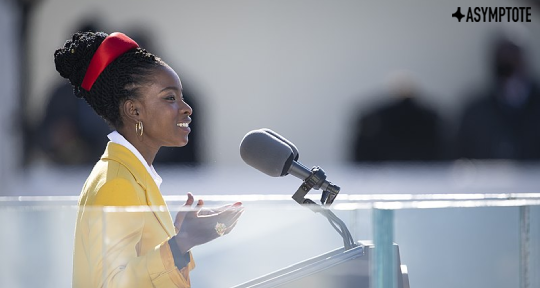This week, our writers deliver the latest literary news from Hong Kong, Slovakia, and India. Read about the newest translations to come out of Hong Kong, including works by Duo Duo and Leung Lee-chi. Meanwhile, the pandemic continues to shake the literary world: we hear of how the arts continue to be neglected in Slovakia’s recent recovery plan, and India losing some of her brightest writers amidst this crisis. Despite this, some hopeful signs that things might change. Read on to find out more!
Jacqueline Leung, Editor-at-Large, reporting from Hong Kong
Chinese poet Duo Duo’s Words as Grain, translated from the Chinese by award-winning translator Lucas Klein, is out this month. A recipient of the PEN/Heim Translation Fund grant, Words as Grain is a new collection spanning approximately five decades of the poet’s oeuvre since the 1970s, with a full representation of Duo Duo’s work since his return to China from exile in 2004 and a selection of earlier poems. Duo Duo is hailed as an exponent of the Chinese Misty Poets and has been described by essayist and critic Eliot Weinberger as “a political poet who makes no statements; a realist poet in an alternate universe.” One may revisit Duo Duo’s poem, “Promise,” published in Asymptote’s July 2018 issue and translated by Klein, for a taste.
May also sees the publication of Jennifer Feeley’s translation of Hong Kong writer Leung Lee-chi’s short story, “Empty Rooms,” up on Two Lines Journal. A 2020 winner of the Award for Young Artist in Literary Arts by the Hong Kong Arts Development Council, Leung is among a younger generation of Hong Kong writers starting to get exposure in the English language. “Empty Rooms” is a response to late novelist Liu Yichang’s short story “Turmoil” depicting the chaos of the 1967 riots through the perspectives of inanimate objects. In a similar vein, “Empty Rooms” portrays the interior of an apartment to piece together moments of memory and departure.
It is also exciting to see the announcement of results for the 7th Bai Meigui Translation Competition organized by The Leeds Centre for New Chinese Writing. “The Season When Flowers Bloom,” Francesca Jordan’s winning translation of an excerpt from Taiwanese writer Yáng Shuāng-zǐ’s novella, is selected by the judging panel consisting of Susan Wan Dolling, Mike Fu, and Darryl Sterk. Jordan will be offered a place in the upcoming “Bristol Translates” Literary Translation Summer School in July. Honorable mentions from the competition include entries by Stella Jiayue Zhu, Will Jones, and Lucy Craig-McQuaide. READ MORE…







